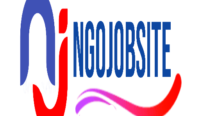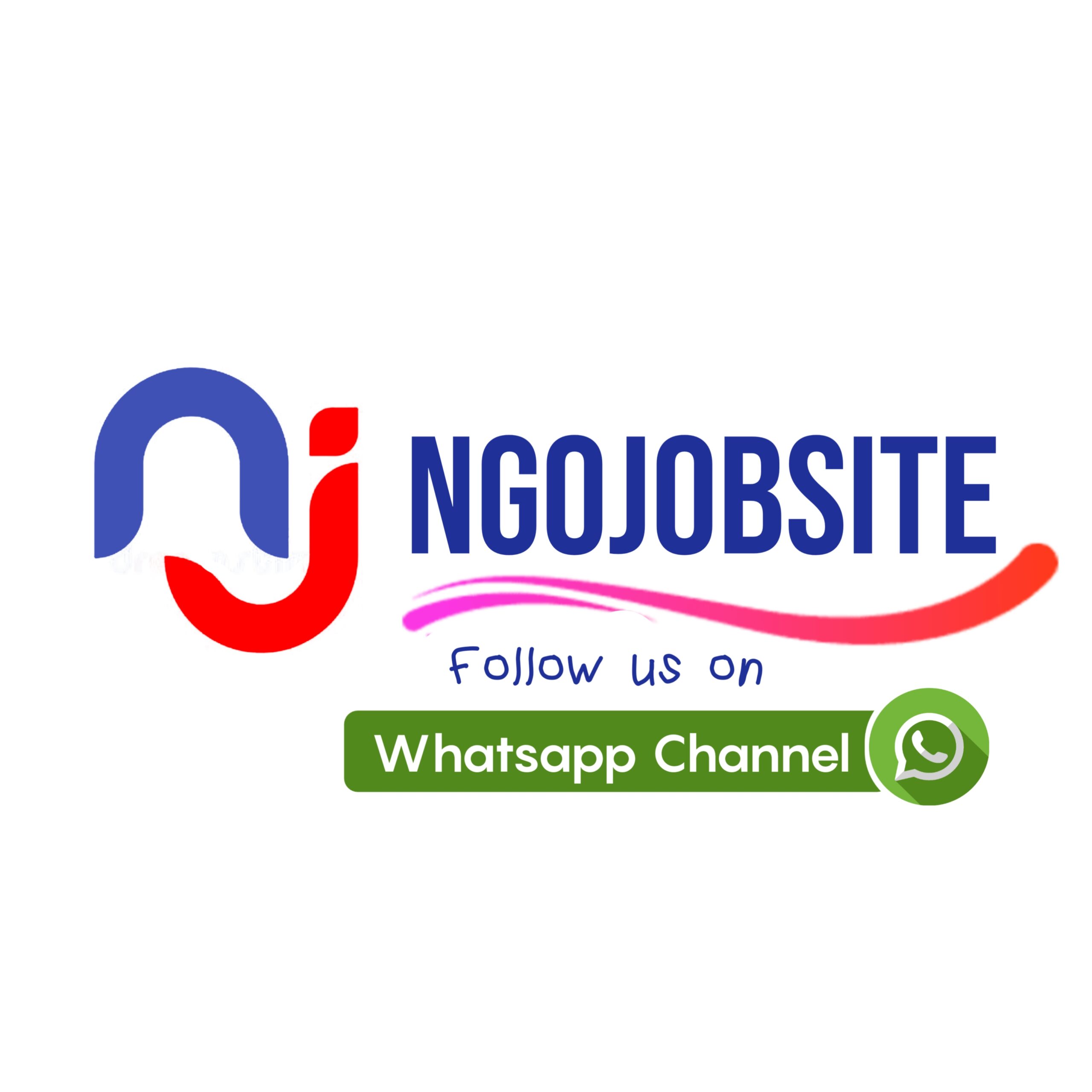
1. EVALUATION PURPOSE
- To review project progress against set targets and indicators, identify gaps and recommend measures for bridging those gaps or improving performance to achieve project objectives and outcome indicators.
- To evaluate the overall performance of the project through measurement using the OECD/DAC criteria focusing on evaluating the Relevance / Appropriateness, Effectiveness and Efficiency with focus on outcome indicators and targets and identifying best practice, lessons learned and challenges.
- To contribute to strengthening the capacity of Nigeria Mission MEAL unit by actively engaging in part of the assessment and evaluation processes that transfer knowledge and skills.
- To document the project gaps, lessons and produce data driven recommendations for lessons re-consumption.
2. BACKGROUND INFORMATION
2.a) Activity Information
Name of the Project
Multi-sectoral Humanitarian Assistance to Protect Lives, Maintain Critical Life-saving Services, and Strengthen Local Engagements and Coping Capacities of Households and Communities affected by the protracted crisis in Northeast Nigeria
Sector: Multisectoral (Health, Nutrition, Wash, Protection & ERMS)
Country: Nigeria
State: Borno State
LGAs: Bama, Dikwa, Magumeri, Monguno, Konduga and Ngala LGAs, Northeast Nigeria.
Starting Date: August 1st 2021
End Date: July 31st 2023
Implementer: INTERSOS
Award Number: 72OBHA21GR00189
Budget: $6,200,000.00
2.b) Background and context
INTERSOS is an International Non-Governmental Organisation providing aid to affected populations in 19 countries. INTERSOS has been working in Nigeria since 2016. The Organisation mainly works in the most vulnerable communities in 6 Local Government Areas (LGAs) across Borno State.
Humanitarian reports[1] by OCHA estimate that the ongoing crisis in Northeast Nigeria has affected at least 8.3 million (out of a total population of 16.1 million) across the three affected States of Borno, Adamawa and Yobe aka BAY- who are now in need of humanitarian assistance. Borno State remains the epicentre of the crisis. At least 64% (3.9 million) of the total population (6.1 million) of people living in Borno State are in need of emergency assistance, according to humanitarian reports. The report estimated that Borno State, is home to nearly half of all people in need (47 per cent), followed by Adamawa (29 per cent) and Yobe (24 per cent). In Borno, approximately 40 per cent of all LGAs, 11 out of 27, have extreme to catastrophic needs, compared to four LGAs in Yobe and none in Adamawa.
INTERSOS received funding from the USAID/BHA to scale up emergency response to the on-going crisis. The multisectoral project that runs from August 2021 to July 31st, 2023, seeks to provide Multi-sectoral Humanitarian Assistance to Protect Lives, Maintain Critical Life-saving Services, and Strengthen Local Engagements and Coping Capacities of Households and Communities affected by the protracted crisis in Northeast Nigeria. Since 2009, the ongoing crisis has caused displacement of almost 1.95 million people in the target areas. The project proposes to reach out to an estimated 122,089 individuals, of which 51,165 are IDPs.
While the current project runs from August 2021 to July 2022 and extended to July 2023, it is noted that INTERSOS has been operating a multi sectoral intervention (WASH, protection, Economic Recovery and Market System, health and nutrition) in these LGAs of Borno State since 2017. Knowledge of this will help in designing the approach to evaluate the project. For instance, in Bama and Ngala LGAs, INTERSOS operates static health facilities that offer primary health care services comprising Outpatient Department (OPD), Sexual and Reproductive Health (SRH) Department and Community Health Program (CHP). INTERSOS also runs a BEmONC facility in Bama. The facility in Bama caters for the health needs of IDPs while the two OPDs in Gamboru Ngala target both the host community in Gamboru and the IDP population in the ISS Camp. In Dikwa LGA, INTERSOS operates in a semi-permanent clinic which provides OPD, SRH and CHP services. The facility is based in the host community area of Fulatari’ (Bulabulin) and is next to Agri IDPs camp. It is utilised by both IDPs and members of the host community. Furthermore, since January 2019 INTERSOS has been providing SRH services in Masamari and Ajari Camps and in the Reception Center through a mobile clinic. In Magumeri, INTERSOS remains the only organisation providing essential curative services, Antenatal Care (ANC), Post Natal Care (PNC), deliveries and referral in 3 locations within the 3 accessible wards in the LGA (Magumeri, Hoyo Gajiganna,) all the three facilities are in existing Ministry of Health structures. In Monguno LGA, INTERSOS is working as part of a consortium effort with Solidarites International (SI) to provide Integrated multi-sectoral lifesaving assistance to conflict-affected populations in Northeast and Northwest Nigeria. As such, through the current USAID/BHA funding, INTERSOS is providing protection services to the population in Monguno. In Konduga, INTERSOS is providing essential curatives, Antenatal care (ANC), Postal care (PNC), deliveries and referral in Dalori Health facility (Ministry of health existing structure), protection and outreach health and nutrition services in both Dalori and 1000 estate of Konduga LGAs.
2.c) Description of the activity
General Objective:
The overall goal of the project is to reduce morbidity and mortality and strengthen local capacities for people affected by the ongoing crisis in Northeast Nigeria
Specific Objectives:
The sector objectives are:
- Health– To strengthen community engagement and integrated access to and quality of preventive and curative services as well as critical maternal and childhood illnesses.
- Nutrition– To strengthen community engagement, and nutritional status of children under 5 years through timely integrated prevention, detection, management, and referral of malnutrition cases.
- WASH– To strengthen community engagement and access to safe water and integrated preventive sanitation and hygiene promotion and best practices against WASH-related illnesses.
- Protection– To strengthen community-based protection mechanism and response for and support to survivors of sexual, physical, and emotional violence through timely, well-coordinated, and integrated response and mitigation services.
- ERMS– To improve resilience and coping mechanisms of the most vulnerable survivors of GBV and affected households by supporting through new livelihood opportunities and strengthen supportive social networks and capacities for early recovery.
Through these interventions, the project also ought to empower local communities and service providers by working through existing structures where they exist, adhering to Nigerian guidelines and protocols, and empowering community actors in direct service delivery. The scope of current protection activities offered by INTERSOS is focused on Gender-Based Violence (GBV) prevention and response that include providing Psycho-Social Support (PSS) to survivors. Further, INTERSOS is not directly providing immunisation services and Comprehensive Emergency Maternal Obstetrics and Neonatal Care (CEMONC) due to limited funding. We however refer others and caretakers of under-five children to other agencies that provide these services within the target areas.
3. EVALUATION TYPE
In this framework, INTERSOS is seeking the services of a consultant to conduct a Performance Evaluation of the project “Multi-sectoral Humanitarian Assistance to Protect Lives, Maintain Critical Life-saving Services, and Strengthen Local Engagements and Coping Capacities of Households and Communities affected by the protracted crisis in Northeast Nigeria”. The assignment will be an End of Project Evaluation (EPE) in September 2023. Results from this evaluation will be used to inform the Final donor report and provide the lessons and gaps for re-consumption in our future programming activities.
4. EVALUATION QUESTIONS
The evaluation questions should be aligned with the purpose of the evaluation and directly tied to the decisions they aim to inform. When appropriate, the consultant should ensure that gender integration is incorporated into the questions. It is important for the evaluation questions to establish a clear connection to the evaluation’s purpose and intended use, and they should be related to each evaluation criteria identified for the exercise.
While the exact questions will be framed by the Evaluator(s), they should follow the below guiding questions:
Relevance & Appropriateness:
- To what extent are the objectives of the programme valid and relevant to the local needs?
- Are the activities consistent with the overall goal and the attainment of its objectives?
- Was the design of the programme the most appropriate and relevant to achieve the set results and objectives?
Efficiency & Effectiveness:
- Were activities cost-efficient?
- Were objectives achieved on time?
- To what extent were the objectives achieved / are likely to be achieved?
- What were the major factors influencing the achievement or non-achievement of the purpose of the programme?
(Un)intended Consequences and Lessons Learned:
- What changes—expected and unexpected, positive and negative—did targeted beneficiaries, community members and other stakeholders associate with the activity’s interventions?
- What factors appear to facilitate or inhibit these changes?
5. EVALUATION METHODS & LIMITATIONS
INTERSOS subscribes to the Organization for Economic Co-operation and Development (OECD) Development Assistance Committee (DAC) criteria for evaluation: Relevance / Appropriateness, Effectiveness and Efficiency, and aims at identifying best practice, lessons learned and challenges. The consultant proposal must clearly illustrate and align the evaluation activities and report with the same criteria and objectives.
The evaluation will include both quantitative and qualitative cluster sampling approaches, methods, and tools to collect empirical primary data in line with the outcome indicators for the project.
The consultant will adopt a gender-sensitive and inclusive clustering approach to ensure that results reflect a reality from different target groups and primary stakeholders. Cluster sampling is proposed due to prevailing security situations that may hinder accessibility to some target populations. We recommend that analysis of protection activities should be factual (cause-effect), based on assumptions and expectations of causality and linearity.
6. EVALUATION TIMELINE & DELIVERABLES
6.a) Key Evaluation Dates
Expected Start Date: September 1st 2023
Expected End Date: September 30th 2023
Total duration of Assignment: 30 calendar days
6.b) Language of the Evaluation
Language Requirements for the Evaluation: English (fluent)
Language of the Report: English
6.c) Key deliverables
Outputs
Deadlines
Inception Report
September 1st, 2023
Draft Final Evaluation Report
September 25th, 2023
Final Evaluation Report
September 30th, 2023
6.d) Deliverable Stages
1. Develop a scientifically sound and rigorous sampling design, methods, and tools, in close collaboration with INTERSOS Technical Referents, M&E Department as well as the Program Management unit. INTERSOS will share project proposal, logframe and indicator matrix to help guide the successful consultant with this design phase.
2. After INTERSOS has reviewed and approved the sampling design, data collection and analysis methods and tools shall be developed by the consultant.
3.The consultant will conduct the data collection in the project locations and submit a detailed narrative and qualitative report.
6.e) Inception Report
The Inception Report shall include:
- Consultant’s understanding of the ToR
- Consultant Experience/Expertise Relevant to the role
- Proposed Evaluation design
- OECD/DAC Criteria
- Evaluation questions- Annexed
- Evaluation matrix
- Data-collection methods & tools
- Work plan
- Allocation of work within the team
- CVs of the Lead Consultant and other key personnel
6.f) Evaluation Report
The Final Evaluation Report shall follow the following format.
- Cover Page
- Table of Contents
- Executive Summary
- Main Body
- Annexes
Format for the main body of the report is:
- Background Information
- Methodology
- Findings
- Conclusion
- Limitations & Challenges
- Recommendations
6.g) Tentative Work plan & Timetable
ACTIVITIES
WORKING DAYS
DATES
Application phase / hiring of consultant(s)
August 18th -31st 2023
- Document Review (local context, project documents- proposal, logframes, data tools etc.,).
5th September 1st – 5th 2023
- Develop sampling design, methods, and tools.
5th September 6th to September 10th 2023
- Data collection and analysis
5th September 11th to September 15th 2023
- Draft Report
10th September 16th to September 25th 2023
- Feedback session with INTERSOS’ technical and management staff.
- Submission of Final Report
5th September 26th to September 30th, 2023
Total working days: 30
6.h) Reporting Lines
Throughout the entire phases of the exercise, the consultant will receive supervision and directly report to the MEAL Manager and Deputy Head of Mission, who are stationed in Maiduguri. These individuals will be responsible for providing security guidance and technical guidance and coordination. The Country Programme Coordinator in Maiduguri will provide overall oversight and guidance for the project.
The evaluator should provide a debriefing with relevant staff at INTERSOS Mission/HQ level on her/his draft report, and on the main findings and recommendations of the evaluation.
The Final Report will be reviewed and validated by the MEAL Manager / Deputy HoM, as well as by the HQ MEAL Advisor and the Grants Control & Compliance Unit.
7. EVALUATION FINDINGS DISSEMINATION
Results from the end of project evaluation will be used by INTERSOS Nigeria Mission and INTERSOS HQ to measure overall achievements of the project against the agreed objectives and targets. The results will be reported to the donor as part of end of project report. The Nigerian government and other NGOs implementing similar projects in Northeast Nigeria may also use these results for the purpose of learning and improving future programming with respect to what worked well, what did not work well and recommendations for improvements.
The results of the evaluation will equally be shared with the affected communities, as part of the accountability commitment of INTERSOS towards the populations it assists.
8. EVALUATION TEAM COMPOSITION
The Consultant should have at least a master’s degree (PhD preferred) in relevant fields (preferably in Public Health and Protection related fields) with at least 7 years of demonstrated practical international experience in assessing multisectoral (Health, Nutrition, WASH and Protection) programmes in complex humanitarian emergencies, preferably in Africa. Experience conducting similar assignments in Nigeria and Northeast Nigeria will be an added advantage. The consultant should demonstrate a strong background in implementation research, and Monitoring and Evaluation (M&E) within the NGO sector, and a sound understanding of protection issues, with a focus on GBV and PPS activities. Note that the submitted applications will be reviewed on a rolling basis.
9. REFERENCE DOCUMENTS
The following documents will be shared to the successful candidate:
- Project proposal
- Baseline report
- Indicator Matrix
- PAT, KAP surveys, reports to donors
How to apply
10. APPLICATION SUBMISSION REQUIREMENTS
The proposal should include.
Technical Proposal
- Demonstrated relevant experience in handling similar assignments in Sub-Saharan Africa.
- Demonstrated own understanding and interpretation of the terms of reference.
- Outline the methodology to be used in undertaking the assignment, completed with Evaluation questions as well as related limitations.
- Share copies of CVs and at least three letters of recommendations from previous clients
- Provide a detailed work plan/activity schedule for the assignment.
Additional Documents Required:
- A copy of certificate of incorporation.
- Copies of tax compliance certificate.
- PIN & VAT Registration Certificate.
- Attach company profile and details of physical address of the company i.e. town, street, building, floor and contact person(s) etc.;
Financial Proposal
- A breakdown of the financial proposal in USD indicating daily rate and total fees for the assignment.
- Estimate the total reimbursable costs to cover travel and accommodation costs in Nigeria.
- Applicable withholding taxes and or VAT should be quoted separately.
- If the financial proposal is silent on taxes, INTERSOS shall assume that these are inclusive.
11. SUBMISSION OF APPLICATIONS
All applications must be sent to the Email: [email protected] Only applications received within the acceptance period will be considered for evaluation.



